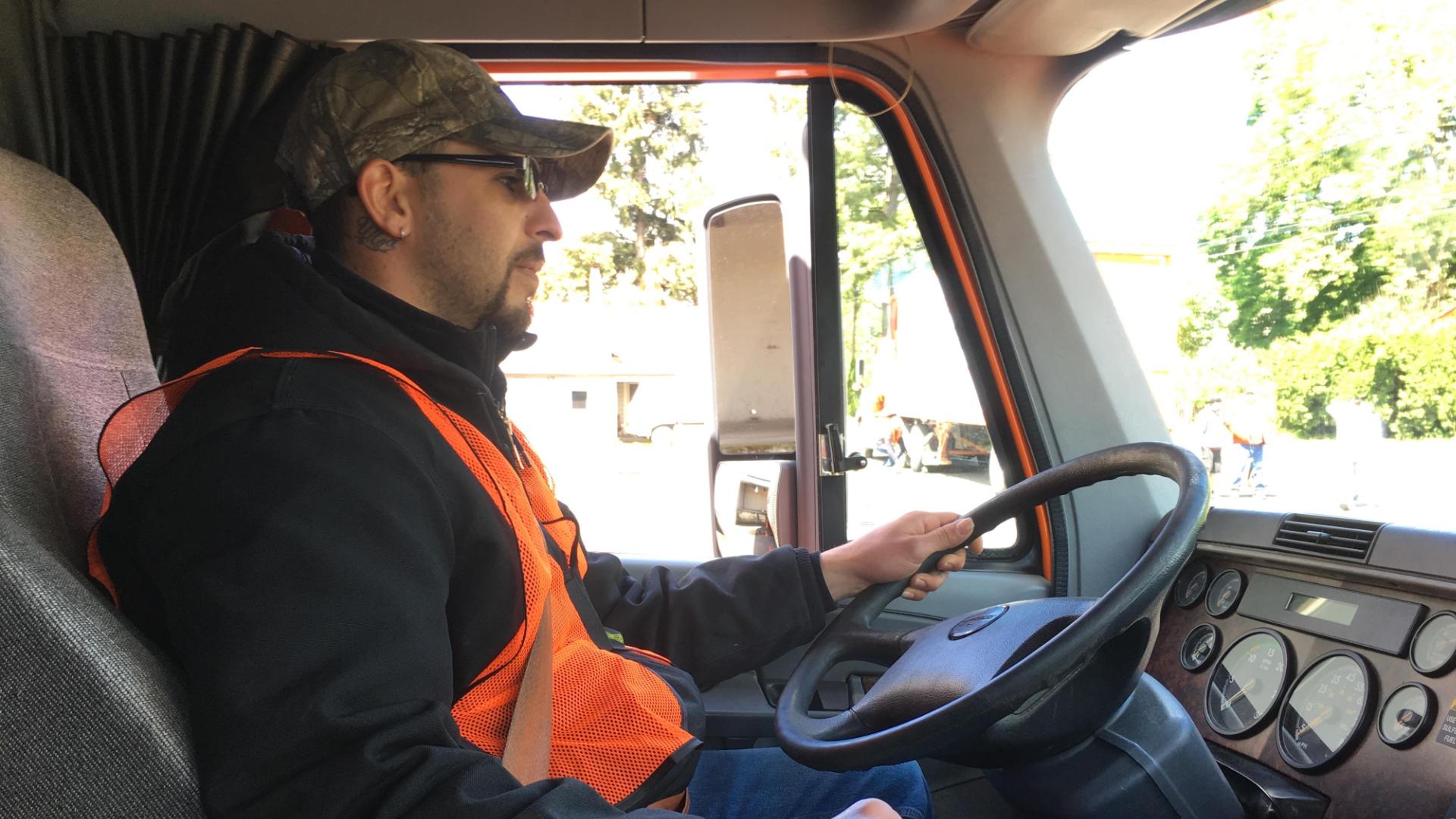Skyrocketing college costs and stagnant wages are causing many high schoolers to reevaluate their options as graduation nears. The old adage that a four-year college is the best road to the middle class is no longer the conventional wisdom.
But, there are vital industries in today’s economy that offer opportunities for steady, good-paying jobs without the exorbitant financial burden of an undergraduate degree. One such industry is trucking.
Virtually every item we use in our daily lives gets to stores and homes thanks to professional truck drivers. And with the explosion of e-commerce and online shopping in recent years, trucking is in greater demand than ever — leading to a national shortage of more than 60,000 truck drivers.
There are more than 17,000 trucking companies located in Maryland, providing almost 113,000 jobs throughout the state. These jobs pay well too, with an average salary of more than $50,000. It is not uncommon for an experienced driver for a private carrier to earn more than $80,000 yearly, plus benefits.
Unfortunately, there are regulatory roadblocks that deny young Marylanders the opportunity to pursue these promising opportunities. While it is legal in Maryland (and every state in the U.S. except Hawaii and Alaska) for 18-year-olds to obtain a Commercial Driver’s License and operate trucks in intrastate commerce, a federal rule prevents them from participating in interstate commerce.
What this means in practice is that a 20-year-old Marylander can drive a truck 130 miles across the state from Hagerstown to Elkton and back, but she is legally barred from driving less than 10 miles from Bethesda across the border into McLean, Va. Younger drivers in states such as California and Texas can travel several hundred miles without crossing the border, but someone in Elkton, Md. can’t drive 18 miles to Newark, Del.
This makes no sense. Worst of all, it denies these young job seekers access to the lucrative I-95 freight corridor that crosses through Maryland and extends up and down the eastern seaboard. Unable to participate in interstate commerce, where the greater pay is, they are wooed away to other industries like manufacturing, retail and food service.
Fortunately, there is a solution. The bipartisan DRIVE-Safe Act introduced in Congress would fix this legal loophole and align federal rules with the laws currently in place in the states, allowing CDL holders under the age of 21 to operate in interstate commerce and cross state lines.
The bill has 32 Democrat and Republican co-sponsors in the Senate, and more than 100 in the House of Representatives, including Maryland’s First District Representative Andy Harris, a Republican.
Most important of all, this bill raises the safety bar on America’s highways by significantly strengthening safety and training standards for 18- to 20-year-old commercial drivers. Under the DRIVE-Safe Act, candidates age 18-20 must still first obtain a CDL by passing the standard skills and knowledge tests, as they do today.
However, under this legislation, candidates would then be mandated to undergo two rigorous probationary periods totaling 400 hours, while being graded against an intensive long list of specific performance benchmarks. The entire probationary period is conducted under the supervision of an experienced truck driver in the cab.
Even further, any truck operated by the apprentice during this training period must have the most advanced safety systems available, including automatic or automatic-manual transmissions, active braking collision mitigation systems, forward facing video event capture and governed speeds of 65 MPH.
RELATED: Truck Safety Federal Regulations
Apprentices involved in a “preventable accident” or “a moving violation that is reportable to DOT” would be subject to remediation and additional hours of training. These new, rigorous safety standards far exceed current requirements for 18- to 20-year-old truck drivers, significantly improving highway safety.
Above all, the DRIVE-Safe Act would open doors of opportunity for young Marylanders to begin a career in trucking immediately after high school. If we can train and send our nation’s young men and women overseas to fight our wars, there is no reason we cannot train them to operate a Commercial Motor Vehicle across state lines.
Maryland’s vital trucking industry calls on Senators Ben Cardin and Chris Van Hollen and all of our congressional representatives to co-sponsor this important bill. It would be a major benefit to Maryland’s constituents, safety on our highways and our economy.




